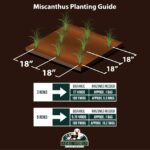Navigating pregnancy involves numerous lifestyle adjustments, and dietary changes are paramount for ensuring the health of both mother and baby. Knowing what foods to avoid during pregnancy is crucial for a safe and healthy nine months. This guide provides a comprehensive overview of foods and beverages that require caution or complete avoidance during pregnancy.
Caffeine Consumption During Pregnancy
While you don’t have to completely eliminate your morning coffee, it’s essential to significantly limit caffeine intake during pregnancy. The recommendation is to consume no more than 200mg of caffeine per day. Exceeding this limit is linked to an increased risk of pregnancy complications, including low birth weight in newborns and, in more severe cases, miscarriage.
To put 200mg into perspective, consider the caffeine content in common drinks:
- Instant Coffee: A standard mug of instant coffee contains approximately 100mg of caffeine.
- Filter Coffee: A mug of filter coffee has a higher caffeine content, around 140mg.
- Tea: A mug of regular tea, and even green tea, can contain about 75mg of caffeine.
- Cola: A can of cola contains a lower amount of caffeine, roughly 40mg.
- Energy Drinks: These are often high in caffeine; a 250ml can may contain around 80mg.
- Dark Chocolate: A 50g bar of plain dark chocolate has less than 25mg of caffeine.
- Milk Chocolate: Milk chocolate contains even less caffeine, with under 10mg in a 50g bar.
Be mindful of your daily consumption from all sources to stay within the recommended limit.
Herbal Teas: A Word of Caution in Pregnancy
Herbal teas might seem like a healthy alternative, but during pregnancy, it’s important to exercise caution. The caffeine content in herbal teas can vary significantly depending on the brand and ingredients. Some are caffeine-free, while others can contain notable levels. Always check the ingredient label for caffeine content.
Furthermore, certain herbs used in herbal teas can be potentially harmful, especially during the first trimester (weeks 1-12) of pregnancy. As a general guideline, limiting herbal tea consumption to 1 to 2 cups per day is considered safe for most pregnancies. If you have concerns, consult with your healthcare provider about specific herbal teas.
Alcohol: Strict Avoidance During Pregnancy
The safest approach to alcohol during pregnancy is complete abstinence. Drinking alcohol while pregnant can have severe and long-lasting consequences for your baby’s development. Alcohol consumption during pregnancy is linked to a range of developmental issues and birth defects. If you are pregnant or planning to become pregnant, avoiding alcohol entirely is the most responsible choice to minimize risks to your baby.
Liquorice and Liquorice Root
While liquorice candy is generally considered safe to eat in moderation, it’s advisable to avoid liquorice root during pregnancy. Liquorice root contains glycyrrhizic acid, which in high amounts has been linked to potential pregnancy complications. Stick to enjoying other treats and avoid products specifically containing liquorice root.
Fruits, Vegetables, and Salads: Wash Thoroughly
Fruits, vegetables, and salads are essential parts of a healthy pregnancy diet, but they require careful preparation. These fresh foods can carry soil-borne pathogens that can cause illness. To ensure safety, always wash fruits, vegetables, and salad ingredients thoroughly under running water before consumption. This simple step significantly reduces the risk of foodborne illnesses during pregnancy.
Enoki Mushrooms: Cook Them Well
Enoki mushrooms pose a potential risk due to the possibility of Listeria bacteria contamination. Listeria infection (listeriosis) during pregnancy is particularly dangerous and can lead to serious complications such as miscarriage or stillbirth, or severe illness in newborns.
To eliminate the risk of listeriosis from enoki mushrooms, ensure they are cooked thoroughly. Cooking effectively kills Listeria bacteria. Proper storage is also important; keep enoki mushrooms refrigerated before use. When handling and preparing them, practice good hygiene: wash your hands with soap and warm water, and clean all surfaces and utensils that come into contact with the mushrooms.
Peanuts: Generally Safe Unless Allergic
Good news for peanut lovers: it is generally safe to eat peanuts during pregnancy. Unless you have a known nut allergy or have been advised by a healthcare professional to avoid peanuts, there’s no need to eliminate them from your diet. Previous advice to avoid peanuts during pregnancy to prevent allergies in children has been updated based on new research.
Vitamins: Avoid High-Dose Supplements
While vitamins are important during pregnancy, it’s crucial to avoid high-dose multivitamin supplements, particularly those containing vitamin A (retinol). Excessive vitamin A intake during pregnancy can be harmful to the developing baby. Always consult your healthcare provider about appropriate vitamin supplementation during pregnancy. They can recommend prenatal vitamins formulated specifically for pregnancy needs with safe levels of all essential nutrients.
This guide provides essential information on what foods to avoid or limit during pregnancy. Always consult with your healthcare provider or a registered dietitian for personalized dietary advice and to address any specific concerns you may have throughout your pregnancy journey.
